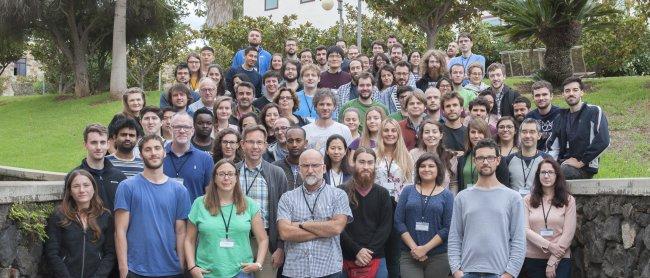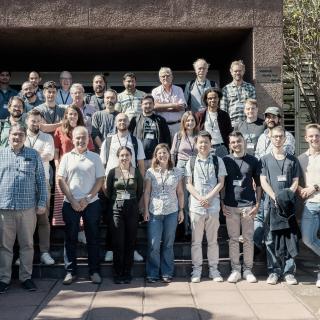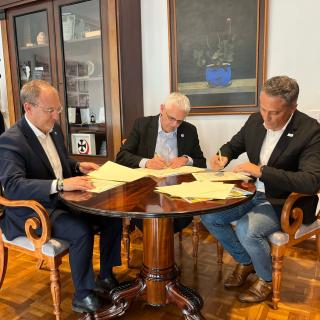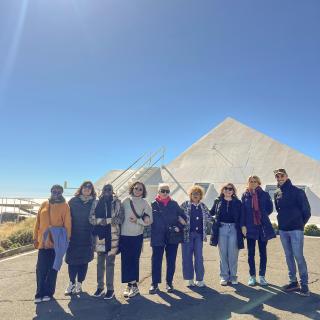Group photograph of the Thirtieth Canary Islands Winter School of Astrophysics at the University of La Laguna. Credit: Miguel Briganti (SMM, IAC).
Advertised on
The classes of the thirtieth Winter School of the Instituto de Astrofísica de Canarias (IAC) ended today, Friday, 9 November with a closure ceremony. Ana Monreal Ibero, Johan Knapen, and Jorge Sánchez Ameida, organizers of the training course, attended the ceremony.



